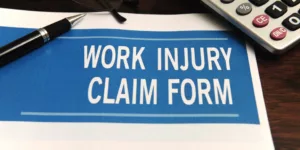Everyone will experience at least one motor vehicle accident in their life. While it might not be catastrophic, the experience is traumatic all the same. Motorists have rights, especially when injured in an accident caused by someone’s negligence.
Sadly, most victims are unaware of their rights or the laws encompassing car accidents and injuries. Therefore, as a driver of D.C., you need to protect yourself and familiarize yourself with these common laws.
Statute of Limitations for Personal Injury Claims
The law puts a time limit on how long you have to file your claim. This ensures that the defendant has a chance to defend themselves, but also that evidence is available to both sides. In D.C. you are limited to three years from the date of discovery, which typically means it starts from the date of the incident.
If your lawsuit is not filed before the three-year limit strikes, you will be barred from receiving compensation – no matter how strong the evidence is proving the defendant’s negligence.
Washington, D.C. Follows Contributory Fault Rules
Most states use shared fault laws. Some states are harsh with their shared fault rules and could prohibit a person from receiving compensation if they are in any way at-fault for their own injury.
Washington, D.C. employs contributory fault rules. Sadly, that means that if you are found at-fault for any part of the injury or accident, you are barred from compensation. For example, you are involved in a motor vehicle accident with a drunken driver. You were going ten miles over the posted speed limit at the same time. While the drunken driver caused the accident, your injuries and the accident may have been prevented if you had been driving at the speed limit.
After analyzing the fault, the court determines that the drunken motorist is 90 percent at-fault, while you are 10 percent. Therefore, your compensation automatically decreases to zero and you cannot collect compensation.
Washington, D.C. Also Uses No-Fault Insurance Systems
The state uses the no-fault car accident system, which means drivers must receive compensation from their insurance company regardless of fault. Drivers can step out of the no-fault system only in specific situations, including
- The injuries are substantial,permanent, and require long-term medical care
- The individual is permanently disabled
- The individual cannot perform normal, daily duties for at least 180 days
- Medical costs exceed the no-fault insurance policy maximum
Car Accidents and Injury Claims Against the Government are Different
Car accidents and other injury claims against the government require that you and your attorney follow separate personal injury rules. First, you only have six months to file your claim with the government – while you have three years to file in ordinary personal injury claims against civilians. If you fail to notify the government of your intent to file a lawsuit, you are barred from compensation.
It is Best to Hire a Washington, D.C. Injury Advocate
While these laws help you better understand the process and your rights, it is still recommended that you hire a personal injury attorney to represent your case. Personal injury cases are complex, and insurance companies will always attempt to put the blame on the plaintiff and exploit contributory fault laws. Therefore, you need an advocate there to protect you from false contributory claims and aggressively seek the compensation you need for your injuries.
Comparing the Pros and Cons of Filing an Injury Lawsuit
No one automatically plans on filing a personal injury lawsuit after an accident. Most of us believe that the insurance companies we pay monthly will be more than willing to pay for your injuries, lost wages, and pain. However, once the accident happens, it might become apparent how little work your insurance company or the other party’s insurance company, is willing to put into your best interests.
From denying the claim outright to stalling or offering very little compensation, insurance companies are notorious for making the claim process stressful. Victims are often left feeling as though they have no other choice but to take legal action. While you might be unsure if a lawsuit is right for you, assessing the pros and cons may help you decide.
Also, be sure to consult with an injury attorney in Washington, D.C. and see if your case qualifies for a lawsuit. Even without filing an official lawsuit, your attorney may be able to negotiate a better settlement.
The Pros of Filing a Personal Injury Lawsuit
You have multiple reasons you should file your lawsuit against the at-fault party, who becomes the defendant in an injury case. The benefits of using a civil suit include
- Your medical expenses will be paid
- You can receive compensation for missed wages at work
- You can receive compensation for partial or permanent disabilities from the incident
- You can receive funeral expenses if your loved one dies
- You can receive compensation for your pain and suffering
All these reasons are good reasons to file a personal injury lawsuit. If you have excessive medical costs, cannot work, missed several days from work due to your injuries, lost a loved one, or have extensive injuries, you should file a lawsuit to receive compensation.
The Cons of Filing a Personal Injury Lawsuit
Sometimes, filing a personal injury lawsuit brings negative consequences. However, the positive effects often outweigh the negatives, which is why many victims move forward with the lawsuit. Most of these cons are inconveniences, but they are necessary if you want the compensation you need to cover your medical costs, expenses, and receive compensation for your physical, mental, and emotional suffering.
Some cons to a lawsuit include
- The lawsuit becomes a matter of public record
- You will be required to answer questions in detail about your injuries and how they have affected your life
- You may be accused of faking or falsifying information about your injury in the lawsuit by the defense – this is merely a strategy
- The process will take time before you can receive compensation
Note that in most cases, insurance companies settle after an attorney gets involved and a lawsuit is filed. Therefore, even though the lawsuit is filed against the defense, it may not go to trial.
Speak with an Injury Attorney and Weigh Your Options
It is best to weigh the pros and cons with an attorney. An attorney can review the evidence of your case and help determine if you have a case and how beneficial a lawsuit would be to receive compensation.








